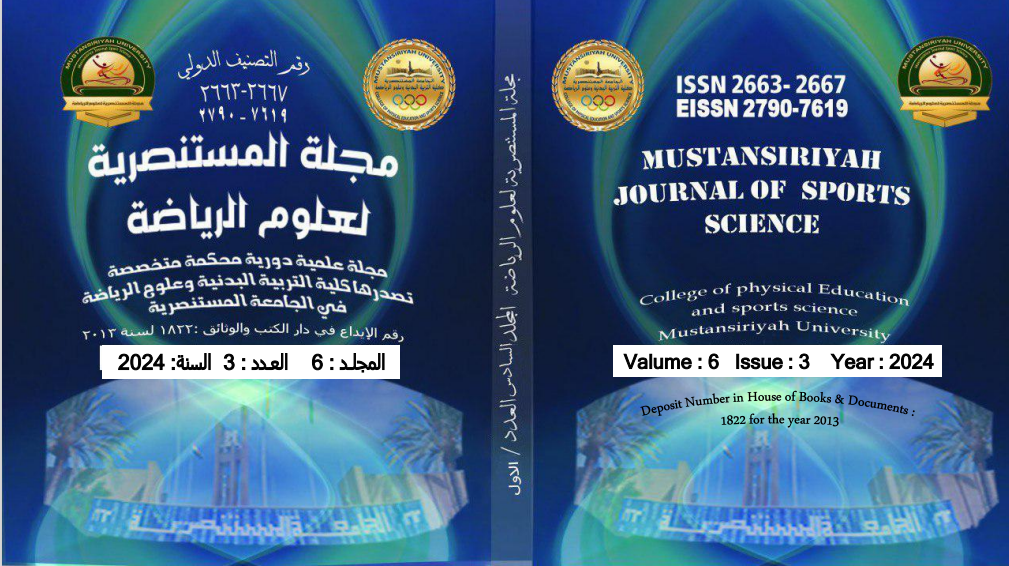Effectiveness of Skill Exercises using The Flipped Learning Method according to Representational Systems on Some Attacking skills in Basketball among Students at the College of Physical Education and Sports Sciences
Main Article Content
Abstract
The goal of the research is to prepare skill exercises and educational units in a flipped learning style to develop some attacking skills, and to know their impact on the development of students’ basketball skills. Here the research problem appeared as a result of the technological development taking place in developing skills, so the researchers worked on introducing methods that keep pace with this development, which is the choice of learning. The inverse of using complex exercises according to representative systems and working to employ them to develop some of the students’ attacking basketball skills, where the researchers used the experimental method to suit the nature of the research, and the sample was chosen intentionally, the students of the fourth stage of the College of Physical Education and Sports Sciences / Al-Mustansiriya University, who numbered (30 students) , and the researchers hypothesized that there is a statistical significance for the test results of the research groups in developing some attacking skills in basketball, and the researchers concluded that attacking exercises have a positive effect in developing skill abilities, and that the flipped learning strategy according to learning styles has a positive role, and it was found that the prepared educational units The researchers showed great effectiveness in developing the mental, physical and motor abilities and capabilities of the research sample through the results achieved by the research sample. The researchers recommended the use of attacking exercises for flipped learning to generalize and develop motor programs for basketball skills in colleges of physical education, and attention to offensive exercises because they help to develop various abilities for various sports skills and events.
Downloads
Article Details

This work is licensed under a Creative Commons Attribution-NonCommercial 4.0 International License.

